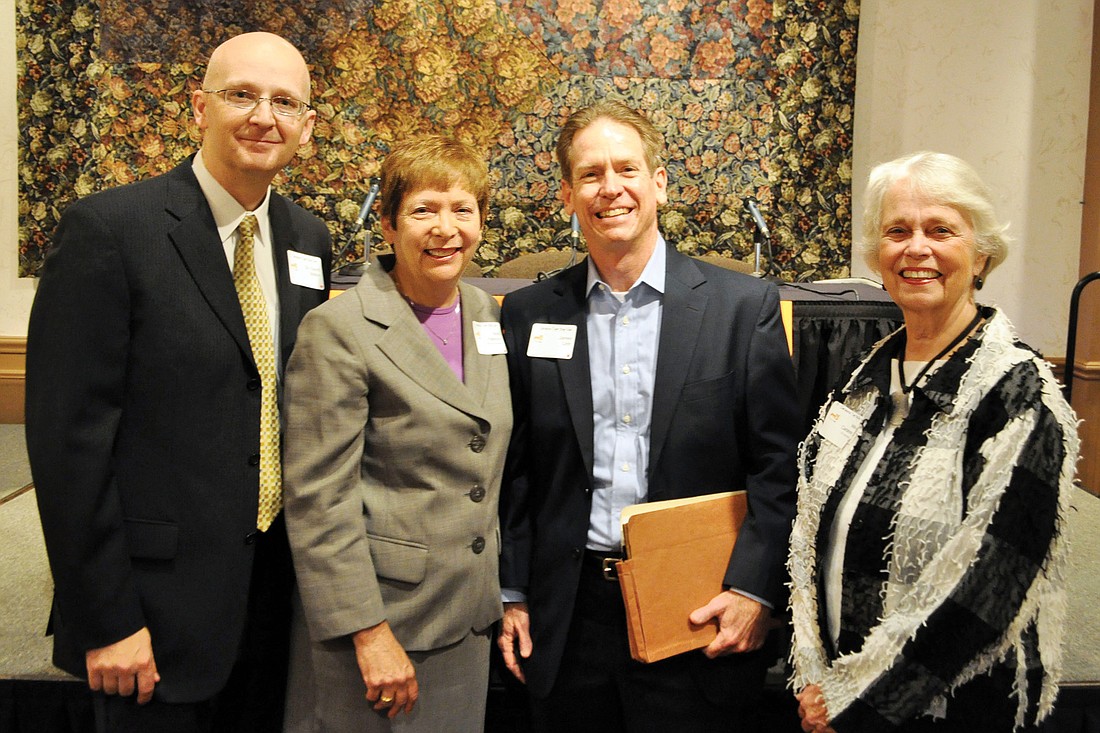- April 25, 2024
-
-
Loading

Loading

There’s no quick fix for the state’s public-sector-employee pension problems.
That was the theme of a “Public Pensions” forum sponsored by the Sarasota Tiger Bay Club Thursday, June 7.
Sarasota County Commissioner Nora Patterson moderated the panel, made up of two pension lawyers and a financial management professor.
“Public-sector plans once seemed very well-funded, but now seem very unsustainable,” she said.
After noting that taxpayers are growing restless of funding generous public-sector pension plans that have growing unfunded liabilities when taxpayers don’t have such generous retirement plans, Patterson asked the panel what’s going to happen.
The answer from the three panelists varied.
Tallahassee pension attorney James Linn said, ultimately, it will come down to taxpayers.
“There are valid points made about everyone being in a 401(k) plan, instead,” Linn said. “The problem is trying to balance what taxpayers are willing to pay for those benefits, because putting all the risk on the cities and counties has gotten too expensive.”
Miami attorney and retired firefighter Jim Brantley, who represents police and fire unions, had a different take.
“No one has their head in the sand about this issue that needs to be addressed,” Brantley said. “Clearly, plans that have 40% to 60% rise in costs are not sustainable and need changes, and the employees should have to be a part of the solution.”
But ending the plans and shifting to defined contribution plans, Brantley said, is not the answer for all pension plans.
“It’s time to accept lower benefits when the plans are too out of control,” Brantley said.
Linn explained the public pension plans have three main issues that drive them: risk, assumptions and the cost of the plan.
“The problem is for the last 10 years, the average rate of return on most of these plans was in the neighborhood of 2% when they were expected to make 8%,” Linn said. “Because they are not making their assumptions, it’s adding to cost and driving this issue. Governments are looking at reform because you can’t sustain these costs for very long.”
Dr. David Matkin, a Florida State University professor, explained that when times are good, pension-investment returns subsidize what the cities and counties would normally put into the plans.
“Now, the good times are over, cities and counties have to pay up and taxpayers are getting upset,” Matkin said. “You have to understand taxpayers are saying they are lucky to keep a job and these employees complain about a reduction of 3% in their pensions. It’s sure to create increased political pressure.”
Brantley, though, said not all public pension plans are in trouble.
“Each plan has its own particular series of events and decisions that led them to their problems today,” Brantley said. “There’s not a single fix for each plan.”
Sarasota attorney John Patterson asked the panel if it was realistic to think employees will accept drastic changes to their retirement plans.
Linn said it’s definitely a topic of discussion, although the decisions are tough.
“You make that decision and close the plan, your costs don’t get reduced for the next 15 to 20 years,” Linn said. “Costs also skyrocket because you cut off the flow to the plans as you are forced to continue to fund plans for the current members.”
Brantley said it’s possible to make necessary changes to the current plans “without throwing out the baby with the bath water.”
“We are seeing evidence of cooperative negotiations, believe it or not,” Brantley said.
Matkin said you can’t put an exact unfunded liability amount for all the pensions in the state, though he said many plans have unfunded liabilities that “have increased millions and millions of dollars in the past few years.”